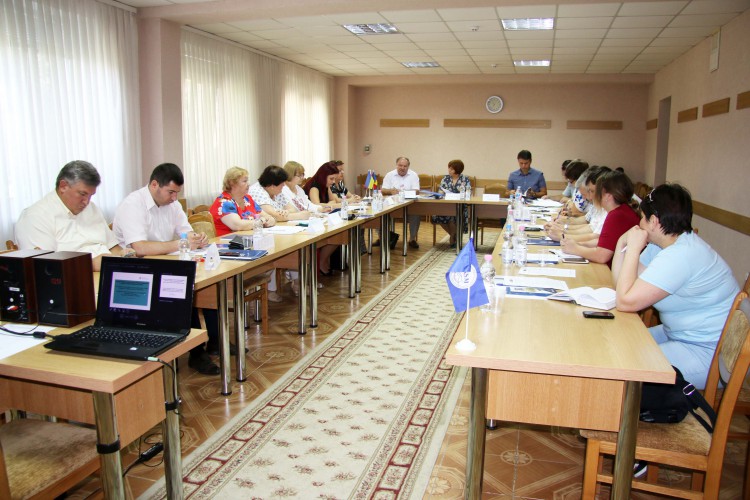Trade unionists from the Republic of Moldova, Belarus and Ukraine are concerned about the phenomenon of migration
Representatives of the Republic of Moldova and Belarus, representatives of the Ministry of Health, Labour and Social Protection, gathered today in Chisinau on 16 August to evaluate the impact of social dialogue on optimizing labour migration in Moldova, Belarus and Ukraine.
The activity was organized at the Labour Institute within the framework of the Project “Impact of the Social Dialogue on the Optimization of Labour Migration in Moldova, Belarus and Ukraine”, carried out on the WG5 Platform of the Eastern Partnership Civil Society Forum.
The objectives of the event were aimed at contributing to the dissemination of social dialogue practices in the field of labour migration in the three mentioned countries; estimating the impact of migration on the labour market and social policies; analysis of the intermediate project’s results.
“The phenomenon of migration is a sensitive one, with a massive impact on our country. Trade unions are not indifferent to the problems faced by people leaving abroad. For more than ten years, together with the social partners, we have been looking for solutions to improve the situation in the given chapter. However, because of the precarious socio-economic situation this phenomenon continues. Moreover, if a few years ago those who were leaving abroad chose to work either seasonally or temporarily, they now leave the country with their children or their parents,” said Petru Chiriac, vice-president of the National Trade Union Confederation of Moldova (CNSM).
According to CNSM vice-president, it is important for the social partners to put more emphasis on supporting those who decide to return to the country through training programs and financial assistance if they want to develop a business.
“Migration is a natural process. People choose to work where they enjoy better appreciation. Unfortunately, this phenomenon has seriously affected the countries in the region and has led to complicated social problems. Being promoters of decent work, we need to help inform those who go abroad to know their rights and know how to defend themselves,” says Vasily Andreev, president of the Construction and Building Materials Industry Workers’ Union of Ukraine.
In her turn, Liliana Posţan, a researcher at the Labour Institute, stressed that the labour migration process requires more efficient management in the direction of optimizing it through social dialogue.
“We need sustainable strategies to optimize the benefits of labour migration. This round table serves as a platform for discussions and identification of solutions to the migration phenomenon,” said Liliana Posţan.
Those present also discussed with Ukrainian trade unionists about the phenomenon of migration through a Skype conference and shared experience to facilitate the strengthening of regional trade union capacity in the field of migration policies.
Department of mass media and international relations



